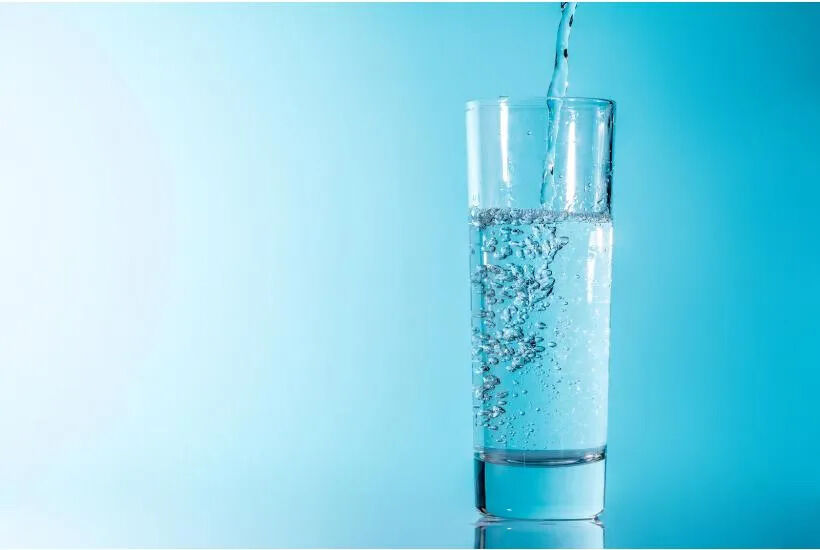The Top Hospitalization Risk Post-Bariatric Surgery: Dehydration

Dehydration, says Jessica Crandall, registered dietician nutritionist and national spokesperson for the Academy of Nutrition and Dietetics, is the number one reason for hospital re-admittance of bariatric patients, post-surgery. This means that, once you’ve had bariatric surgery, it’s crucial that you focus on drinking enough water – and here’s how to make sure you’re getting enough, and how to fight back against dehydration.
If you’re a fan of apps, registered dietician Lori Rosenthal – who specializes in weight management and bariatrics – suggests that you choose one that reminds you to drink water. If you prefer more hands-on solutions, she recommends that you fill up a large bottle that contains all the water you need for that day and keep it in the refrigerator. Then, keep filling up a smaller portable bottle through the day and drink from that.
The need for fluid intake increases when you exercise, with the American College of Sports Medicine recommending that you drink approximately 17 ounces of fluid two hours before you work out. And, if you take diuretic medication, then the risks of dehydration are greater and you need to increase your fluid intake to compensate. Ask your doctor for specifics if you take diuretics.
One of the symptoms of dehydration, TodaysDietician.com points out, is nausea. To deal with that symptom, they recommend that bariatric patients freeze lemon and/or lime wedges and suck on them for relief. For more tasty relief and to increase overall fluid intake, the site recommends that you add lemon or lime wedges, grated ginger and/or diluted juice to water – or to another no-calorie, noncarbonated, decaffeinated beverage – and freeze it until it reaches a slushy consistency. Because ice is less dense than water, a slushy drink can be easier for bariatric patients to tolerate.
How the “magic potion” of water helps you to lose weight and more
Water:
- Naturally suppresses your appetite
- Helps your body to metabolize stored fat/reduce fat deposits
- Helps to maintain appropriate muscle tone
- Helps to prevent sagging skin that typically follows weight loss
- Rids the body of waste, a function that’s even more important during times of weight loss
- Relieves constipation
Typically, a person should drink 64 ounces (eight 8-ounce glasses) of water every day. For every 25 pounds that a person is overweight, though, he or she should drink eight more ounces. And, if you exercise or are out in hot and/or dry weather, you’ll need more hydration.
Fluid guidelines for bariatric patients
- Drink all liquids in between meals, not with meals. “When you drink with your food,” Jessica Crandall explains, “you’re flushing the food through your system without giving yourself a chance to feel full, which means that that you won’t feel as satisfied. You will therefore probably eat more and take in more calories. Patients who drink with their meals often gain back weight.”
- The Mayo Clinic offers other reasons to avoid fluid intake with meals: “Drinking liquids with your meals can cause pain, nausea and vomiting as well as dumping syndrome.”
- Choose fluids that are non-caffeinated and non-carbonated. Although moderate use of caffeine does not appear to have the dehydrating effect that was once believed, it can act as a mild diuretic and the American College of Sports Medicine still recommends that you avoid caffeine after exercise. Carbonated beverages are to be avoided because the gas in the carbonation can uncomfortably stretch the stomach pouch or its outlet.
- The best choice is still water (which can be flavored with lemon); other options include Crystal Lite®, decaffeinated coffee or tea, herbal teas or diluted fruit juice.
- Alcohol should be avoided. To quote the University of California, San Francisco, “We strongly warn against drinking any alcoholic beverages. After surgery, alcohol is absorbed into your system much more quickly than before, making its sedative and mood-altering effects more difficult to predict and control.”
Even more benefits of drinking water

The human body is largely made up of water, with Duke University listing the following percentages:
- Blood: 83%
- Heart: 79.2%
- Muscle: 75.6
- Brain: 74.8%
- Skin: 72%
Water is crucial for healthy kidney and bowel function, and is so important to bodily function overall that, when reduced by only 1%, we experience thirst. When down by 5%, muscle strength and endurance fall significantly – and it only gets worse from there. Not surprisingly, then, one of the best things you can do for yourself is do drink enough fluids every day. Lori recommends “sipping on sugar-free drinks all day long. Don’t try to chug a bottle’s worth of water. Incorporating hydrating options like drinks with fiber can support digestion while helping you stay consistently hydrated throughout the day. Instead, take in small amounts throughout the day, especially during the summer and when exercising.”
What questions do you have about the importance of water consumption after your bariatric surgery? Contact us!